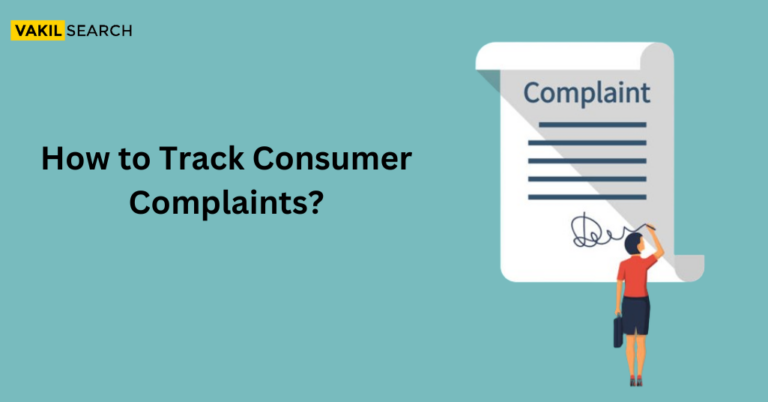Consumers are the backbone of an economy because they can purchase goods and services. The goods and services should preferably be of a certain standard without flaws or shortcomings.
The LIC had earlier refused to pay the assured amount to him even years after he made full payment of premiums.
Introduction
A consumer court handles consumer complaints and grievances. Unhappy customers can submit a complaint in consumer court against the seller based on harassment or delivery of subpar goods or services. These cases can be solved thanks to the judicial hearings established by the Government of India to uphold consumer rights. Here is a comprehensive overview of registering a case in an Indian consumer court.
Consumer Court
Consumer Court was founded in India to adjudicate disputes arising under the Consumer Protection Act of 1986. The district, state, and federal levels of government have all established these courts. A dispute is presented before one of these courts by the law, meaning each Court has a predetermined legal valuation.
When Should Go To a Consumer Court?
According to the Consumer Protection Act, a person who buys a product or a service, for use and not for commercial purposes qualifies as a consumer. It means you can file a case in consumer court if you aren’t satisfied with the quality of a service or the standard of a product you’ve purchased or have agreed to purchase within two years of the grievance. Furthermore, as a consumer, you can also seek compensation for any inconvenience or damage caused by a faulty product or service.
Who Are the NCDRC?
A disgruntled customer has one month from the date of the order to appeal a state commission judgment or submit a complaint directly with the national commission. The demand draft should be sent to The Registrar, National Consumer Disputes Redressal Commission, and the court cost is Rs 5,000. Before the state or national commission, there are no filing fees. Within 30 days, you have the right to file an appeal with the Supreme Court against the national commission’s rulings.
You can approach the NCDRC for the following reasons.
- If the complaint falls under the pecuniary jurisdiction, the consumer has 30 days from the date the ruling was passed to file an appeal from the SCDRC or make a direct complaint.
- The National Consumer Disputes Redressal Commission’s Registrar must be named on the demand draught, and the court fee for filing a complaint is Rs 5,000.
- The State or National Commission do not charge a fee for the filing of an appeal.
How to File a Consumer Case?
- Step 1: Send a notice- Before filing a case, it is advisable to send a legal notice, stating all the facts of the case to the registered office of the company
- Step 2: File the complaint- Now, you can file the complaint on plain paper. It should contain the name, description, and address of the complainant and the opposite party, the facts related to complain, documents in support of allegations made in the complaint, the compensation sought, and the signature of the complainant
- Step 3: Pay court fees- You should pay the court fees in the form of a demand draft
- Step 4: Submit an affidavit.
Where Is Your Jurisdiction?
National Level: If the claim exceeds Rs 1 crore, National Consumer Disputes Redressal Commission will handle the complaint.
District Level: If the claim is for less than Rs. 20 lakh, the District Consumer Disputes Redressal Forum will hear the appeal.
State Level: If the claim is for more than Rs 20 lakh but less than Rs 1 crore, the State Consumer Dispute Redressal Commission will consider the case.
Advantages Of Approaching The Consumer Court:
- Specialized Jurisdiction:
– Consumer courts specialize in handling disputes related to consumer rights, providing a focused and efficient legal recourse for consumers.
- Swift Resolution:
– Consumer courts are designed to resolve cases promptly, offering a quicker resolution compared to traditional legal avenues.
- Cost-Effective Process:
– The cost of filing complaints in consumer courts is relatively lower, making it more accessible for individuals seeking redressal for consumer grievances.
- Consumer-Centric Approach:
– The legal framework of consumer courts prioritizes consumer rights, ensuring a more balanced and consumer-centric approach to dispute resolution.
- No Need for Legal Representation:
– Consumers can represent themselves in consumer courts, eliminating the necessity for expensive legal representation and simplifying the process.
- Compensation and Redressal:
– Consumer courts have the authority to grant compensation and provide redressal to consumers who have suffered due to defective products or deficient services.
- Informal Proceedings:
– The proceedings in consumer courts are relatively informal, making it easier for consumers to navigate the legal process without extensive legal expertise.
- Doorstep Redressal:
– Consumer courts operate at different levels, including district, state, and national levels, providing consumers with accessible options for seeking redressal.
Disadvantages Of Approaching The Consumer Court:
- Limited Jurisdiction:
– Consumer courts have limited jurisdiction and may not cover all types of disputes, particularly those falling outside the scope of consumer protection laws.
- Delays in Proceedings:
– Despite efforts for swift resolution, consumer court proceedings may still face delays, impacting the timely redressal of consumer grievances.
- Burden of Proof on the Consumer:
– Consumers are often required to provide substantial evidence to prove their case, placing a burden on them to substantiate their claims.
- Appeal Process Challenges:
– The appeal process in consumer courts may be challenging, and consumers dissatisfied with the decision may find it difficult to navigate further legal avenues.
- Limited Remedies:
– Consumer courts may have limitations in terms of the types of remedies they can provide, especially when it comes to non-monetary compensation or complex legal issues.
- Informal Nature Can Pose Challenges:
– While the informal nature of consumer court proceedings is an advantage, it can also pose challenges for consumers who may struggle to navigate legal complexities without professional assistance.
- Overburdened System:
– Consumer courts, especially at lower levels, may be overburdened with a high volume of cases, leading to potential delays in the resolution of disputes.
- Ineffectiveness Against Unregistered Entities:
– Consumer courts may face challenges in dealing with disputes involving unregistered or informal entities, limiting their effectiveness in certain cases.
|
If you require detailed information on the limitation to file a consumer complaint, limitation in the Consumer Protection Act, district consumer forum claim limit, or the limitation period for a consumer complaint, it is advisable to request a callback from the knowledgeable experts at Vakilsearch. By reaching out to Vakilsearch, you can gain valuable insights and guidance on navigating the specific legal aspects related to consumer complaints and the Consumer Protection Act. |
Time Limit to File a Case in The Consumer Court
A consumer complaint should be made within two years of the day the claim, service issue, or product fault first appears. The complainant should convince the District Forum that he/she has reasonable cause for failing to file the complaint before the two-year deadline for the law to let the Consumer do so. It can be excused if the delay is acceptable and can be explained.
Conclusion
If a firm does not provide good service or valuable items, customers have the right to file complaints and ask for compensation in a consumer court or forum. If a vendor sold you a subpar product or a service provider provided you with poor service, you might also be able to seek legal remedies by filing a consumer complaint. Knowing the Consumer Protection Act will give the consumer an edge over the problems that might arise in the consumer sector.
Also, Read:










